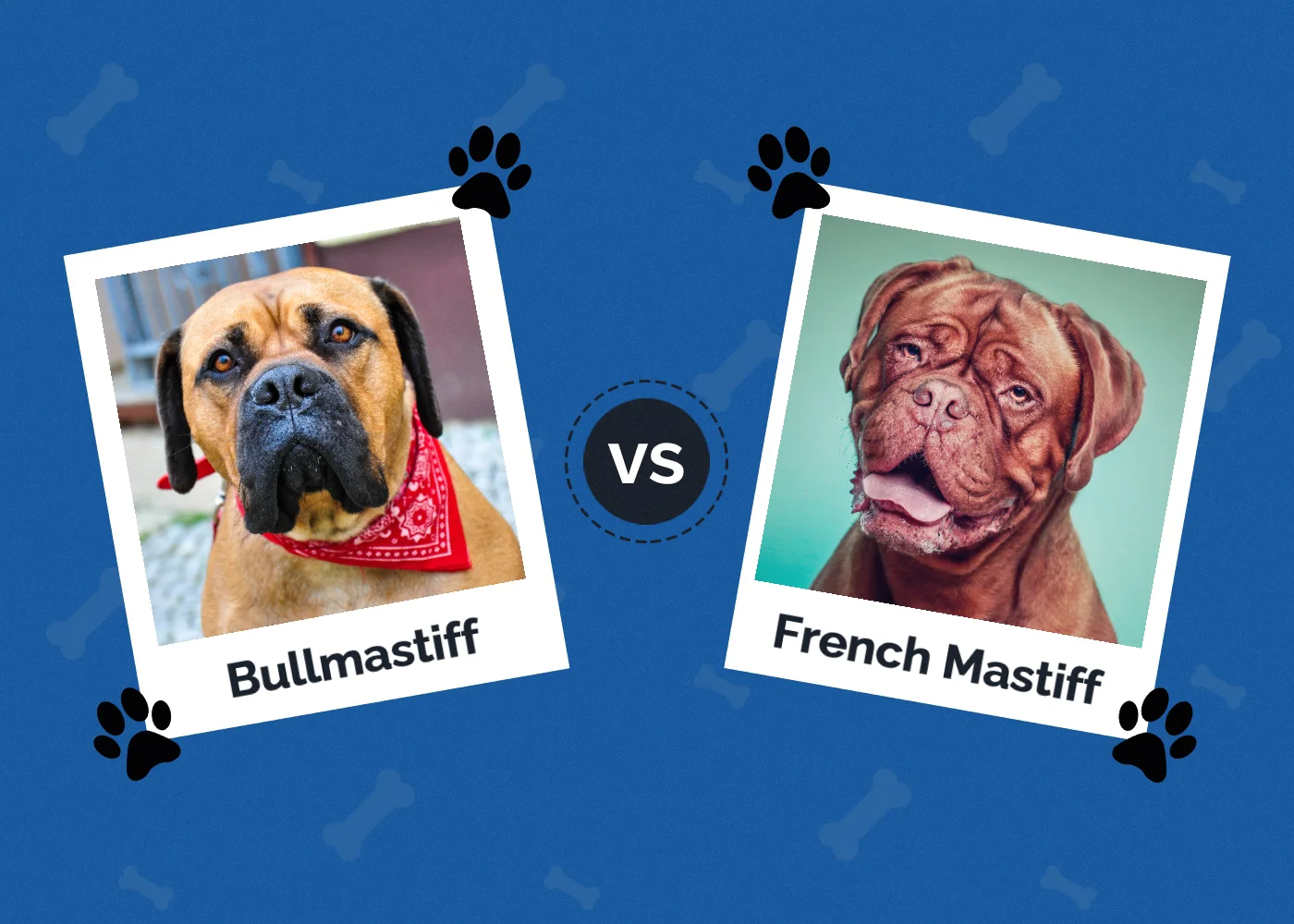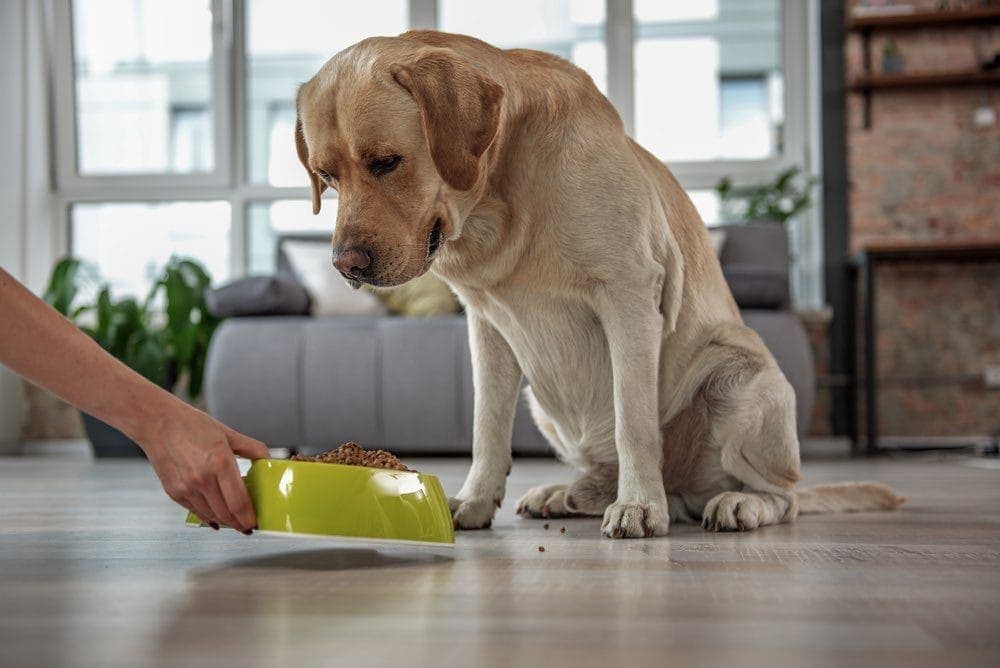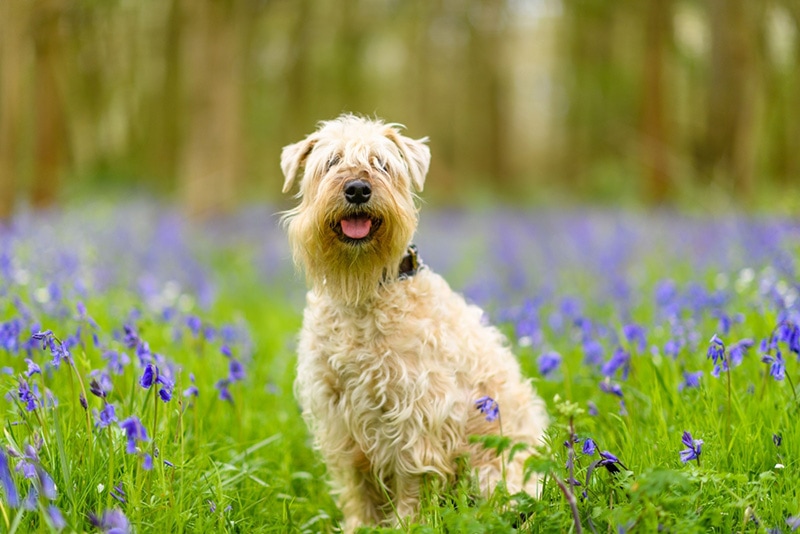Can Dogs Eat Ravioli? Is It Safe for Them?
Updated on
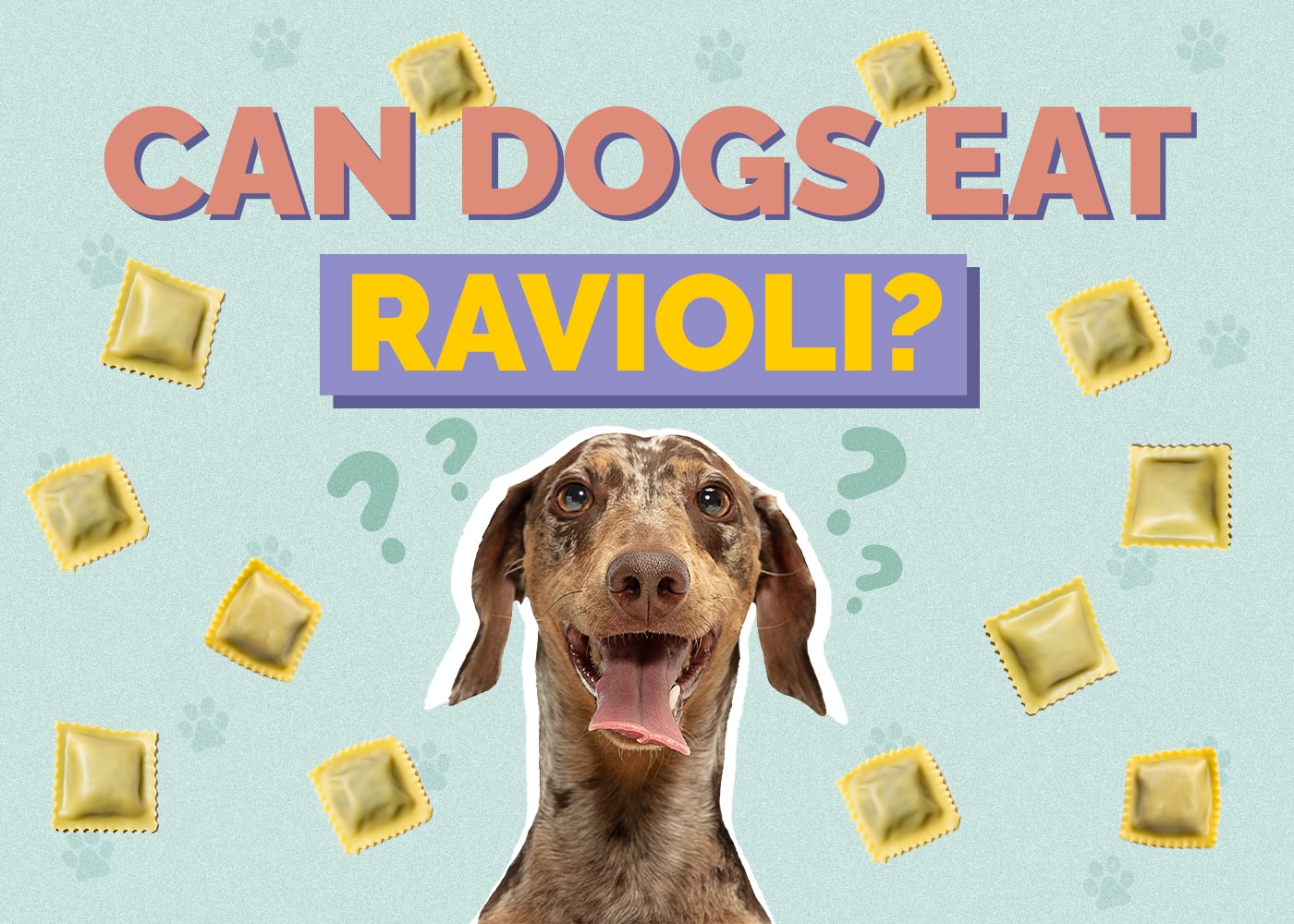
Ravioli is an Italian meal that is enjoyed by people worldwide. The Italian dumpling can have a vegetarian filling or one that includes meat. The outside of the Ravioli is pasta and can be round or square in shape. Pasta is safe for dogs to eat occasionally if it’s been cooked properly and isn’t mixed with anything else. If ravioli is mostly pasta, then you may assume that it’s safe for dogs. While dogs can eat ravioli in moderation, it’s important to know what ingredients are inside.
Sometimes adding a tiny amount of one ingredient to increase the taste of the stuffing can have a negative effect on your dog. Don’t give your dog any ravioli from a restaurant or store because you don’t know the exact ingredients they used. Instead, stick to giving them the occasional home-cooked ravioli—if at all.
Is Ravioli Healthy for Dogs?
Ravioli typically consists of pasta stuffed with meat, cheese, and vegetables. Spices and sauce are usually added to enhance the flavor. While humans can appreciate the spices used, dogs cannot. For the safety of your dog, rather treat them to this snack without the extras.
Pasta
Pasta shouldn’t form part of a dog’s normal diet, but it’s not toxic to them and can be enjoyed as an occasional snack if given in moderation. However, pasta might cause problems in your dog if they have an allergy to wheat or grain.
Pasta doesn’t offer much nutritional value to dogs, but it is a carbohydrate and could provide some energy. It can also lead to weight gain, so never give your dog large helpings.
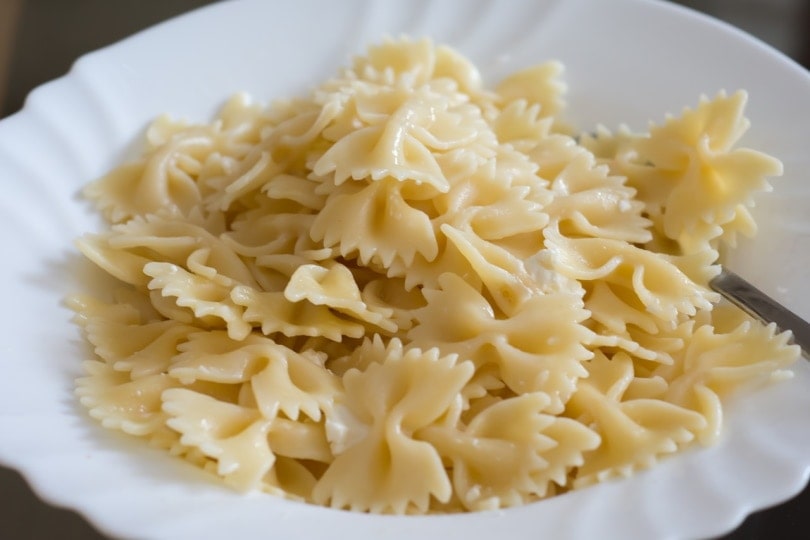
Meat
Beef is typically used inside a ravioli, but chicken, duck, turkey, or lamb are also safe for dogs to eat. In fact, meat must make up part of a dog’s diet as it contributes towards the development of muscles and bodily function. Meat gives your dog the vitamins, minerals, omegas, and amino acids they need.
However, some dogs have allergies to animal proteins and may vomit or get diarrhea after eating them.
Cheese
While some dogs are intolerant of cheese, it is safe for most dogs to enjoy it in moderation. However, this ingredient is high in fat and should never be given to your dog if it is mixed with herbs, garlic, chives, or onions.
Cheese contains calcium, vitamins, essential fatty acids, and protein that benefit dogs.
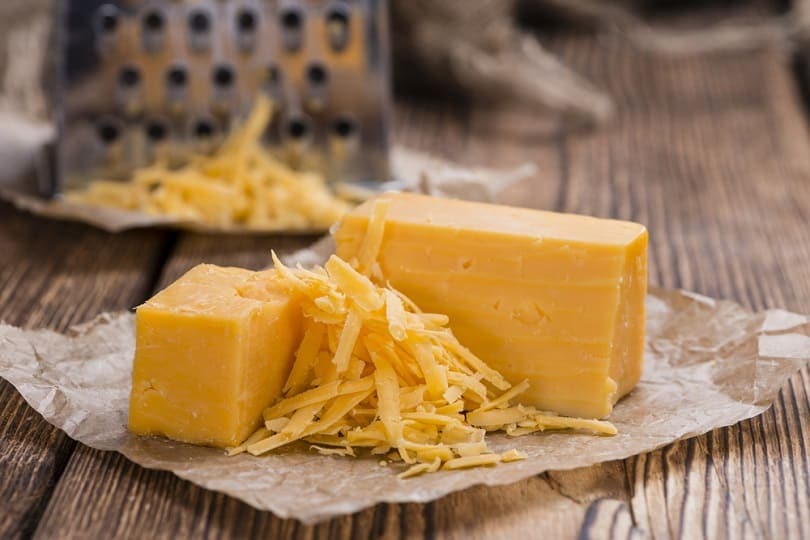
Vegetables
We know that dogs are omnivores, which means that they can eat fruit and vegetables. Vegetables are typically quite low in calories and provide your dog with antioxidants, fiber, and minerals. Some vegetables also provide your dog with energy.
However, not all vegetables are safe for your dog. Onions, garlic, chives, and unripe tomatoes are toxic to dogs and can cause serious problems.
Can Dogs Eat Ravioli Daily?
If you’re a pasta-loving family, it might be best not to include your dog during mealtime. Ravioli is delicious, but it is high in carbohydrates and salt. High-calorie food isn’t recommended for dogs to snack on daily. Too much salt can be dangerous to your dog because it affects the cells in their body, harming their brain and nervous tissue.
The only thing your dog should eat on a daily basis is their high-quality dog food, as it’s nutritionally balanced to meet your dog’s needs. Some treats that have been manufactured for dogs or low-calorie plain vegetables are also safe for them to snack on daily.

Can Dogs Eat Ravioli with Sauce?
Ravioli is often accompanied by tomato or creamy pasta sauce. However, adding the sauce, whether it’s homemade or bought from a store to your dog’s snack is a big no-no. Sauces often contain a high amount of sugar and salt. They also often contain toxic ingredients such as onions and garlic.
Which Types of Ravioli Are Safe for Dogs?
Ravioli can be stuffed with just about anything, and with so many varieties, it can be hard to know which ones are safe and which are toxic to dogs.
- Mozzarella and zucchini
- Mushroom
- Vegan tofu
- Spinach and cheese
- Pumpkin
- Carrot and ricotta
- Salmon and dill

- Quattro Formaggio
- Chocolate dessert
- Cracker meal ravioli
Any ravioli that contains blue cheese, chocolate or caffeine, bleached flour, onions, garlic, chives, or unripe tomatoes should never be fed to your dog.
What Happens If My Dog Eats Too Much Ravioli?
As we’ve mentioned, ravioli eaten by your dog in moderation is safe. However, too much ravioli isn’t going to sit well with your dog, and they’re going to experience discomfort in their abdomen. Most of the ingredients used to make ravioli aren’t natural to a dog’s diet, and they may have a hard time digesting large quantities of this food.
If your dog has had too much ravioli, it’ll likely experience vomiting, diarrhea, bloating, and cramping. However, these symptoms shouldn’t last longer than 24 hours. If they do, your dog may have eaten ravioli with ingredients that they are allergic to. It’s essential that you take them to be seen by a vet immediately if this is the case.
 Conclusion
Conclusion
Dogs can eat a variety of different types of ravioli if done so in moderation. Never give your dog ravioli that contains unknown ingredients or ingredients containing chocolate, blue cheese, onion, garlic, chives, or unripe tomatoes. Ravioli has ingredients that are healthy to them as well as ingredients that provide little to no nutritional value.
Regardless of the Ravioli you decide to treat your dog with, it shouldn’t form part of their daily diet due to it being high in calories and salt, which could lead to unhealthy weight gain and dehydration.
See also:


